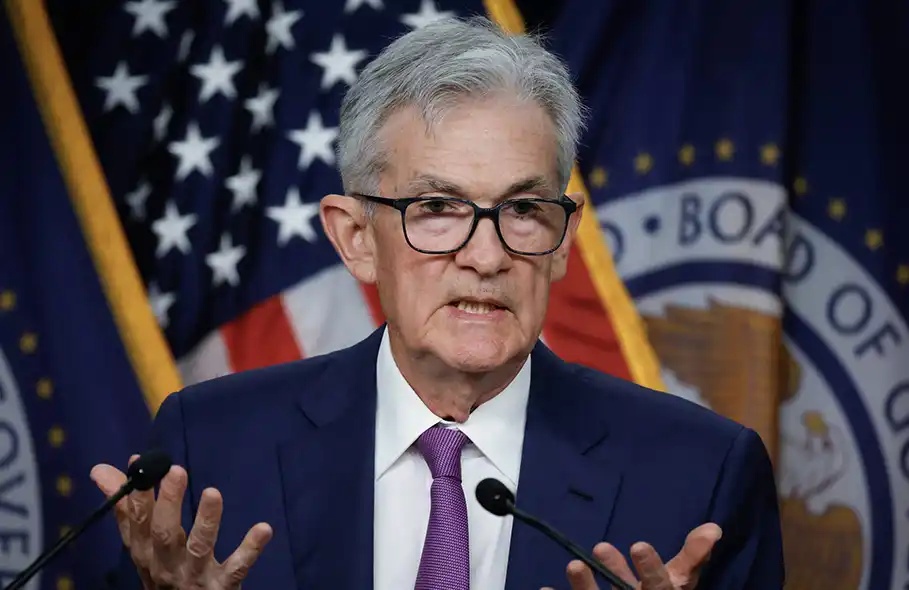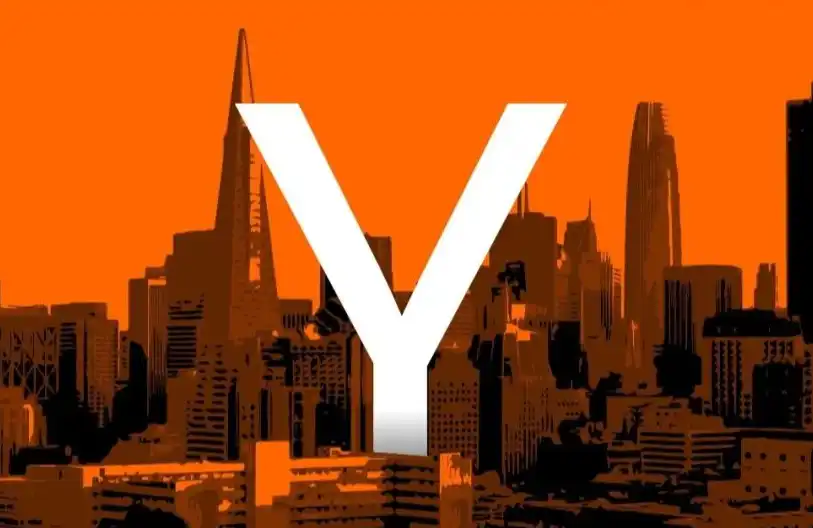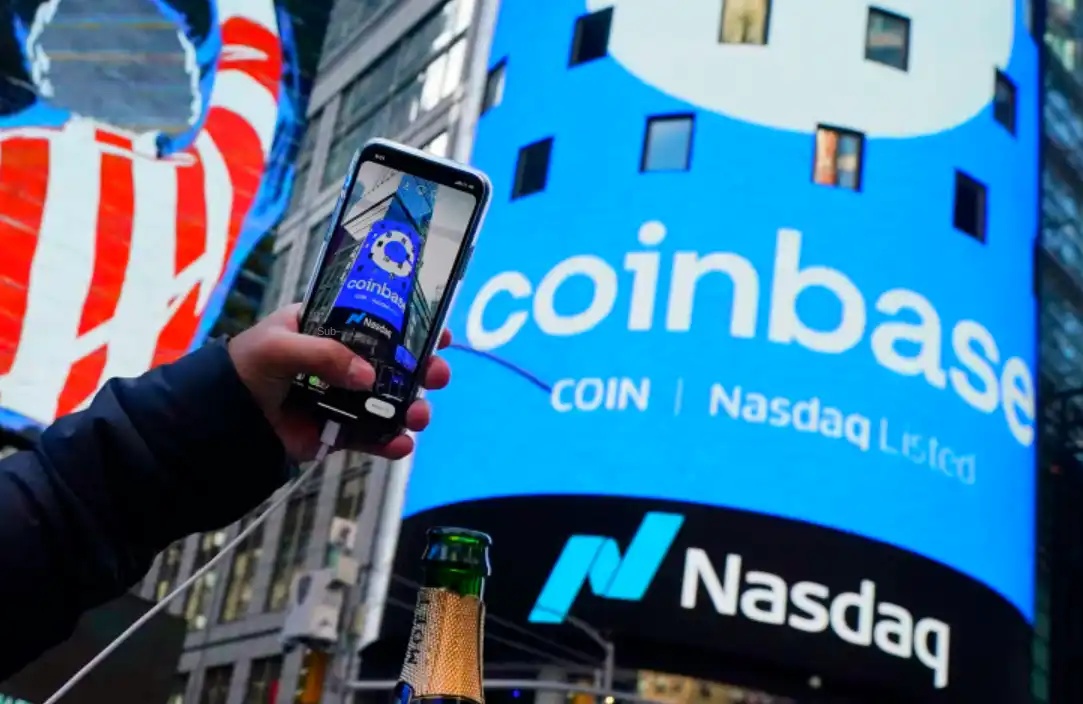Forbes: Why Are Billionaires Rushing Into the Prediction Market?
Original Article Title: "Why Billionaires Are Piling Into Prediction Markets"
Original Article Author: Alicia Park
Original Source: Forbes
Original Translation: DeepTech TechFlow

The smartest billionaire traders are now betting on the emerging prediction markets. Kalshi, with its ties to the Trump camp, has taken a leading position in this potentially trillion-dollar opportunity.
On a cold winter morning in 2023, discount brokerage billionaire Charles Schwab made his way to the office of the little-known prediction market startup Kalshi in SoHo.
Holding several seemingly overstuffed folders, the Wall Street legend spent time delving into the moves of this small enterprise, leaving Kalshi's two 27-year-old co-founders, Tarek Mansour and Luana Lopes Lara, in awe.
Two years ago, Schwab and fellow Wall Street titan Henry Kravis made an angel investment in Mansour's company, participating in a $30 million funding round that valued Kalshi at $1.2 billion.
"Within a few minutes of my first call with Chuck, he said, 'I want to invest,'" said Mansour, 29. "He said it reminded him of when he founded Charles Schwab, the first time in a long time he's seen a company that could fundamentally change the financial markets."
Today, Kalshi is one of Charles Schwab's largest investments aside from his eponymous $176 billion brokerage firm. In June of this year, the startup was valued at $2 billion in a funding round, attracting the attention of another Wall Street billionaire, Zhao Peng, the senior CEO of Citadel Securities.
Investments from Schwab, Kravis, and Peng are not isolated cases. Prediction markets are becoming a hot investment trend among the smartest billionaires in the financial world.
Interactive Brokers founder Thomas Peterffy, with a net worth of $72 billion, told Forbes that he had attempted to acquire Kalshi after participating in their angel funding round in 2021. Despite being turned down, Peterffy did not give up. His Interactive Brokers launched a subsidiary called ForecastEx a year ago, competing with Kalshi, predicting future events ranging from the New York City mayoral election to the end-of-2025 Bitcoin price.
In April 2024, Jeff Yass's $65 billion quantitative trading hedge fund Susquehanna International Group partnered with Kalshi to act as one of its primary market makers to provide liquidity. Recently, Kalshi collaborated with Vlad Tenev's $6.4 billion Robinhood to add event contract trading to the growing retail investment product lineup.
To stay ahead of competitors in the same field, blockchain-based prediction market Polymarket attracted investments from numerous billionaires, including Palantir co-founder Peter Thiel ($25.3 billion), Ethereum founder Vitalik Buterin, and Airbnb co-founder Joe Gebbia ($7.7 billion). According to Pitchbook, in August this year, Polymarket's valuation reached $1 billion after a $135 million funding round led by Thiel's Founders Fund. Coinbase founder Brian Armstrong ($13.7 billion) also announced in July the upcoming launch of the "Everything Exchange," a prediction market service for its millions of customers.
According to The Information, both Kalshi and Polymarket are currently seeking new rounds of funding that could raise their valuations to $5 billion and $9 billion, respectively.
Betting on elections and sports events is not a new phenomenon: as early as the 19th century, this form existed in the United States, and modern prediction markets—allowing users to bet on the outcome of future events by trading "yes" or "no" contracts—were first proposed at the University of Iowa in 1988.
Early prediction markets, such as Intrade and PredictIt, were publicly issued in the 2010s but were restricted due to regulatory issues and lack of appeal. While Kalshi was not a pioneer, it made history last October when a federal court ruling authorized Kalshi to offer presidential election contracts, breaking a century-old prohibition on such contracts.
The presidential election changed the game: after receiving regulatory approval for election betting, Kalshi's user base grew tenfold in less than a month, with user bets exceeding $1 billion and reaching 2 million on the eve of the election night. Polymarket users placed bets as high as $3.6 billion on Trump or Harris. The momentum of the election made prediction markets culturally relevant, unearthing a series of similar infinite betting opportunities ranging from next year's Oscar nominees to whether Astronomer CEO, after hugging Arcade Fire on the giant screen at a concert, will divorce.
If you were to ask billionaire traders why they wanted to get into the prediction market industry, you might get a lot of noble answers:
“Throughout my entire career, people not thinking about the future from a probabilistic standpoint has always bothered me,” said Peter Phi. His brokerage firm, with assets totaling $100 billion, originally founded in 1977, aimed to get more people trading options or betting on stock prices. “To me, the prediction market is a way to teach the public how to think about future outcomes from a probabilistic standpoint.”
Jeff Yass runs a hedge fund, and being adept at poker has almost become a job requirement for him. He messaged Forbes saying, “The prediction market allows parties to more effectively distribute risk based on parameters.
The hurricane risk faced by Florida homeowners is one example. Rather than purchasing annual insurance, it’s better to buy a ‘yes/no’ contract when a hurricane is approaching, based on the latest meteorological data predicting that the wind speed in the town will exceed a specified value, thus hedging against potential property loss risk.”
Tenev, naming the partnership between Robinhood and Kalshi set to take effect in March 2024, wrote, “At its most fundamental level, [the prediction market] is the application of capitalism in the pursuit of truth. The market incentives and collective wisdom will sift through all information to determine the answer to a specific question and the outcome of significant events.” Just a month ago, Armstrong of Coinbase told CNBC that the prediction market may one day become an alternative to The New York Times.
Mansoor, an MIT graduate engineer who has worked in stock options trading at Goldman Sachs and Citadel Securities, bluntly stated:
“If you are a Wall Street trader, the prediction market has always been your holy grail.”
Speaking of this industry with infinitely tradable products. “We want to build the world's largest commercial market.”
Today, Kalshi in New York has 75 employees, nearly double the size from before the November 2024 election, and offers about 2,000 active markets at any given time.
From a financial services perspective, it makes money in the traditional way, by taking a commission or fee from each contract traded. The price of the contract is linked to the perceived event probability in the market, ranging from 1 cent to 99 cents. For example, buying a 10-cent contract predicting Peter Hegseth will be the first to leave the Trump cabinet has a fee of 1 cent, equivalent to a 10% commission. If 100 “yes” contracts are purchased betting the U.S. government will shut down in 2026, Kalshi would earn $1.75 based on the company's floating fee formula, which is a 3.5% commission. Kalshi also charges a 2% fee on all debit card deposits and a flat $2 fee for withdrawing bonuses from your account.
However, floating fees are not the only reason Kalshi has attracted billionaire supporters. Unlike tradable stocks (which can be traded and settled across any number of brokerages), contracts in the prediction market are proprietary, effectively creating a moat that locks users into the platform that created the market.
Kalshi currently has a monthly trading volume of around $1 billion and has processed a total trading volume of $6.9 billion since its inception, with $6.4 billion of that coming in October 2024. The startup not only directly attracts speculators on its website and mobile app but also white-labels the market to brokerage firms like Robinhood and Webull, thereby increasing liquidity and scale. Mansoor stated that the company plans to add over a dozen more brokerages next year.
“We found that the prediction market is a very good engagement tool,” said JB Mackenzie, Head of Futures at Robinhood. With 27 million customers, Robinhood aims to be the next-generation, all-in-one financial services company. “It helps cross-promote other parts of our business within the company.”
Matt Huang, Founding Partner at crypto investment firm Paradigm, led the $185 million funding round for Kalshi in June of this year. He believes that low operating costs may help the prediction market effectively cannibalize other mature markets. “The prediction market is a superset of all other markets: you can reclassify sports betting, stock markets, and almost any other market as a prediction market,” said Huang. “In a sense, the prediction market could grow to be as large as the largest financial markets, or even larger. I truly believe their potential is limitless.” To Mansoor, the scale of this opportunity is in the “tens of trillions of dollars.”
If the prediction market frenzy receives more momentum, it is likely to come from the Trump camp. Donald Trump Jr., the son of former President Trump, joined Kalshi in January of this year as a strategic advisor. Eliezer Mishory, who previously served as the Chief Regulatory Officer at Kalshi for four years, was appointed as the Head of Government Efficiency under the Trump administration. Brian Quintenz, a board member of Kalshi, previously served as a commissioner at the U.S. Commodity Futures Trading Commission during the first Trump administration and was appointed earlier this year as the Head of the CFTC by Trump.
In his application for the Forbes 2022 “30 Under 30” nomination, Mansoor listed Emil Michael, an angel investor in Kalshi and former Chief Technology Officer of the Department of Defense nominated by Trump, as his sole professional recommendation. Additionally, Samantha Schwab, the granddaughter of Charles Schwab, has no other professional experience apart from working in the Trump administration. According to her LinkedIn profile, she worked in Kalshi’s business development team for a year and then joined the U.S. Department of the Treasury as Deputy Chief of Staff in January of this year.
While Kalshi holds a leading position in the prediction market, this competition is far from over.
At the end of August, Donald Trump Jr. invested in Kalshi's competitor Polymarket and joined its advisory board. A few days later, Polymarket received approval from the Commodity Futures Trading Commission (CFTC) and went live in the U.S., putting it on par with Kalshi in terms of Wall Street penetration. The largest U.S. sports betting platforms, Fanduel and Draftkings, are also developing their own prediction markets, while state regulators are still litigating the legality of Kalshi's sports event contracts — the company's biggest market to date. Stay tuned.
Welcome to join the official BlockBeats community:
Telegram Subscription Group: https://t.me/theblockbeats
Telegram Discussion Group: https://t.me/BlockBeats_App
Official Twitter Account: https://twitter.com/BlockBeatsAsia


 Forum
Forum Finance
Finance
 Specials
Specials
 On-chain Eco
On-chain Eco
 Entry
Entry
 Podcasts
Podcasts
 Activities
Activities
 OPRR
OPRR








